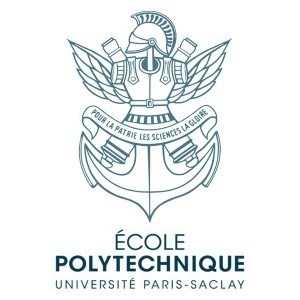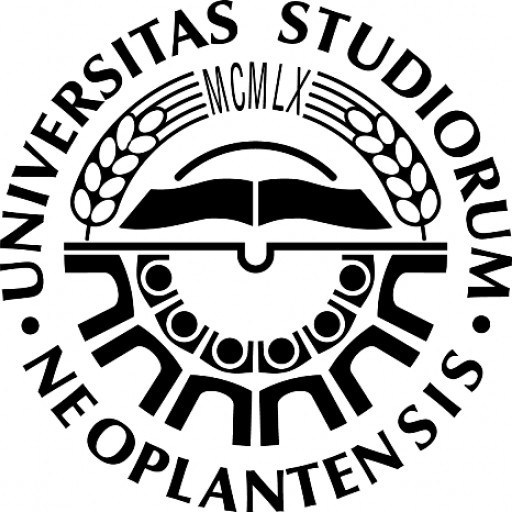Photos of university
Helicopter Engineering at the Higher National School of Aeronautical Engineers offers a comprehensive curriculum designed to prepare students for the specialized field of rotorcraft design, maintenance, and operation. This program combines rigorous theoretical coursework with extensive practical training to equip graduates with the skills necessary to meet the demands of the aerospace industry. Students enrolled in this programme will engage in a wide range of subjects including aerodynamics specific to helicopters, aeronautical engineering principles, materials science tailored for rotorcraft, propulsion systems, and avionics. Emphasis is placed on the analysis and design of helicopter structures, control systems, and safety protocols to ensure optimal performance and reliability.
The program also incorporates advanced training in flight mechanics and maintenance procedures, providing students with hands-on experience through laboratory work, simulation exercises, and internships with leading aerospace companies. This approach ensures that graduates are well-versed in the latest technological developments and industry standards. The curriculum is structured to foster critical thinking, problem-solving skills, and innovation, preparing students for careers in helicopter design, manufacturing, maintenance, research, and development sectors.
Students will have access to state-of-the-art laboratories and workshops equipped with modern tools and equipment, enabling them to gain practical insights into aircraft systems and components. The program also emphasizes safety regulations, environmental considerations, and sustainable practices in helicopter engineering. Graduates of this programme will be capable of working in a variety of roles including aircraft design engineer, maintenance manager, flight sustainability analyst, and technical consultant.
The Higher National School of Aeronautical Engineers maintains strong links with industry leaders, providing students with opportunities for internships, collaborative projects, and employment upon graduation. The program is ideal for aspiring aerospace professionals committed to advancing helicopter technology and ensuring safe, efficient rotorcraft operations worldwide. Upon completing the degree, students will be equipped with the knowledge, skills, and credentials required to excel in the fast-paced and challenging aerospace industry.
The Helicopter Engineering program at the Higher National School of Aeronautical Engineers offers a comprehensive education designed to prepare students for careers in the design, development, maintenance, and operation of rotary-wing aircraft. The curriculum combines fundamental principles of aerodynamics, propulsion systems, materials science, structural analysis, and avionics, with a particular focus on helicopter-specific technologies and engineering challenges. Throughout the program, students are engaged in a blend of theoretical coursework, practical laboratory exercises, and hands-on projects that mirror real-world scenarios faced by helicopter engineers.
The program begins with a solid foundation in mathematics, physics, and general engineering principles, ensuring students develop the analytical skills necessary for complex problem-solving. As students progress, they explore specialized topics such as rotor aerodynamics, vibration analysis, stability and control of rotary-wing aircraft, and advanced materials used in helicopter construction. The curriculum also emphasizes systems integration, maintenance practices, reliability, safety standards, and certification processes critical to the aerospace industry.
Laboratory work plays a significant role, offering students the opportunity to work with modern simulation tools and hardware-in-the-loop testing environments. In addition, collaborations with industry partners enable internships and projects that provide practical experience and professional networking opportunities. The program also prepares students for innovation in helicopter design, including the latest trends in hybrid propulsion systems, noise reduction techniques, and autonomous flight technology.
Graduates of the Helicopter Engineering program will be equipped with the technical expertise and practical skills necessary to pursue careers in aircraft manufacturing companies, maintenance organizations, research and development institutions, or regulatory agencies. They will be capable of contributing to the advancement of helicopter technology, ensuring safety and efficiency in rotorcraft operations. The program aims to develop well-rounded engineers with strong analytical, technical, and problem-solving abilities, ready to meet the evolving demands of the aerospace industry worldwide.
Program requirements for the Helicopter Engineering degree typically include a combination of academic prerequisites, language proficiency, and practical experience. Applicants are generally expected to have completed secondary education with a strong emphasis on mathematics, physics, and technical sciences. A minimum grade point average may be stipulated to ensure candidates possess the necessary foundational knowledge. English language proficiency is often mandatory, with standardized test scores such as IELTS or TOEFL required for non-native speakers. Additionally, some programs may require specific entrance examinations or interviews to assess candidates' aptitude for engineering studies.
Candidates are usually expected to demonstrate interest or experience in aeronautical or mechanical engineering through prior coursework, internships, or relevant projects. Submission of a portfolio or motivation letter explaining the applicant's motivation for pursuing Helicopter Engineering can strengthen the application. The program may also favor applicants with prior exposure to aviation or aerospace industries, including internships or work experience.
In terms of legal or administrative requirements, applicants might need to provide identification documents, health certificates, and undergo background checks if required by the university. For international students, additional documentation such as student visas and proof of financial sufficiency are necessary.
The curriculum is designed to build competencies in aerodynamics, propulsion systems, structural analysis, avionics, and maintenance of helicopter aircraft. To successfully enroll and progress, students must meet the university's academic standards, including passing core courses and practical training modules. The program aims to develop well-rounded specialists capable of designing, maintaining, and operating helicopter systems in compliance with safety and regulatory standards.
Overall, program requirements are structured to ensure that admitted students have a robust technical background, language skills, and motivation aligned with the challenging and specialized nature of helicopter engineering.
The financing of the Helicopter Engineering program at the Higher National School of Aeronautical Engineers is designed to provide accessible and sustainable funding options for students pursuing their studies. The primary sources of funding include government scholarships, university grants, external research funding, and student loans. Government scholarships are available for both domestic and international students based on academic performance, financial need, and specific eligibility criteria. These scholarships aim to reduce the financial burden on students and encourage excellence in aeronautical engineering disciplines. The university also offers a range of grants dedicated to supporting research activities and innovative projects undertaken by students within the Helicopter Engineering program, promoting practical experience and applied knowledge.
In addition to scholarships and grants, students have the opportunity to access external funding sources such as industry-sponsored scholarships and partnerships with aeronautical companies, which provide financial assistance and internships. These industry collaborations often include funding for specialized training, workshops, and conference participation, further enriching the educational experience of students. Student loans are available through recognized financial institutions and are designed to cover tuition fees and living expenses, with repayment plans tailored to graduates’ employment prospects in the aviation sector.
The university actively promotes financial aid awareness among prospective and current students through dedicated counseling services, ensuring they are informed of all available funding opportunities. Furthermore, the program's tuition fee structure is transparent and competitive, with various payment plans to accommodate students' financial situations. Additional support mechanisms include work-study programs and part-time employment opportunities within the university or affiliated aeronautical companies, enabling students to earn while they learn. Overall, the financing framework of the Helicopter Engineering program is structured to facilitate access to high-quality education while minimizing financial hardships, thereby fostering a diverse student body committed to advancing helicopter technology and aeronautical innovation.
Helicopter Engineering at the Higher National School of Aeronautical Engineers is a specialized program designed to prepare students for careers in the aerospace industry, focusing on the design, development, maintenance, and operation of helicopter systems. The curriculum encompasses fundamental engineering principles, advanced aeronautics topics, and specific modules related to rotorcraft technology. Students engage in theoretical coursework complemented by practical laboratory work, simulation exercises, and internship opportunities to gain hands-on experience. The program emphasizes safety standards, aerodynamics, materials science, propulsion systems, and avionics pertinent to helicopters. Graduates are equipped with the technical knowledge and skills necessary to address the complex challenges faced by aerospace engineers working on rotary-wing aircraft. The faculty comprises experienced professionals and researchers who provide mentorship and industry insights, ensuring that students are well-prepared for employment in both civilian and military aviation sectors. The program also encourages innovation through project-based learning and collaboration with aerospace industry partners. Graduates of Helicopter Engineering can pursue careers in aircraft maintenance and repair, systems design, research and development, or management roles in aeronautics companies and governmental aviation agencies. The Higher National School of Aeronautical Engineers maintains strong ties with industry stakeholders, providing students with networking opportunities and access to cutting-edge research. The program aims to produce highly qualified engineers capable of contributing to the advancement of helicopter technology and ensuring safety and efficiency in rotorcraft operation worldwide.







